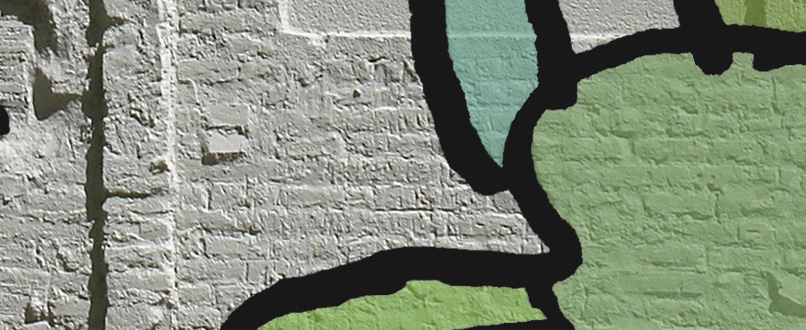Critical incidents and identity profiles of academic counselors in Colombia: Cases analysis
DOI:
https://doi.org/10.32093/ambits.vi56.5043Keywords:
Academic counseling; learning experiences; professional identity; critical incidents, Academic counselling, Learning experiences, Professional identity, Critical incidentsAbstract
The aim of this article is to describe the critical incidents of a group of academic counselors, their identity profiles and learning experiences regarding the critical incidents faced during an academic counseling program, developed in Bogotá, Colombia. The sample consisted of 13 counselors who accompanied 117 public educational institutions, each with nine centers to be with. In this research, the characteristics of a qualitative descriptive-explanatory study were considered and the multimodal interview model was used. Critical incidents found during the training period mostly report difficulties with organization and time management. Regarding the critical incidents present during the counseling to educational institutions, the difficulties due to communicative factors between the different actors for understanding of roles, tasks and the resistance that teachers and the management team presented in general to the counseling stand out. Counselors define their professional identity mainly under the profiles of facilitator, mentor and trainer. Finally we found learning experiences related to the management of counseling techniques and one's own knowledge. The results show the counselors' training needs both in the specific disciplinary field of counseling and in the management of their own emotions. It is also shown that bringing to light the critical incidents present in academic advising contexts fosters dialogic spaces that promote discussions around the functions, identity and learning experiences of advisers.
References
Agahe, T., Wood, C. y Fye H. (2019). Critical incidents in school counseling (2nd ed.). American Counseling Association.
Cano, M., Mayoral, P., Liesa, E. y Castelló M. (2013). Valoración de las funciones del profesor de orientación educativa en Cataluña. REOP Revista Española de Orientación y Psicopedagogía, 24(3), 80-97.
Fletcher, S. y Mullen C., (2012). The SAGE handbook of Mentoring and Coaching in Education. SAGE publications Ltda.
Hermans, H. J. (2015). Dialogical Self in a Complex World: The Need for Bridging Theories. Europe’s Journal of Psychology, 11(1), 1–14. https://doi.org./10.5964/ejop.v11i1.917
Lofthouse, R. (2018). Coaching in education: a professional development process in formation. Professional Development in Education, 45(1), 33-45. https://doi.org/10.1080/19415257.2018.1529611
Monereo, C. (2017). The role of critical incidents in the dialogical construction of teacher identity. Analysis of a professional transition case. Learning, Culture and Social Interaction, 20, 4-13. https://doi.org/10.1016/j.lcsi.2017.10.002
Monereo, C. y Badia, T. (2020). A dialogical self- approach to understanding teacher identity in times of educational innovations. Quaderns de Psicología, 22(2) 1-29.
https://doi.org/10.5565/rev/qpsicologia.1572
Resolución 15683 de 2016 [Ministerio de Educación Nacional]. Por la cual se subroga el Anexo 1 de la resolución 9317 de 2016 que adoptó el Manual de funciones, requisitos y competencias para los cargos de directivos docentes y docentes del sistema especial de carrera docente. 2016.
Onrubia, J., y Minguela M. (2020). Una reflexión en calve inclusiva sobre las funciones de los profesionales de la intervención psicopedagógica. Ámbitos de psicopedagogía y orientación, 52(3) p. 13-24. https://doi.org/10.32093/ambits.vi52.1343
Perkins, G., Oescher, J. y Ballard, M. (2010). The Evolving Identity of School Counselors as Defined by the Stakeholders. Journal of school counseling, 8, 1-28. https://files.eric.ed.gov/fulltext/EJ895917.pdf
Porras, N., Díaz, L. y Nieves, M. (2018). Reverse mentoring and peer coaching as professional development strategies. Colombian Applied Linguistics Journal, 20(2), 162-169. https://doi.org/10.14483/22487085.12422
Popov, N y Spasenović, V. (2020, July 18). School Counseling: A Comparative Study in 12 Countries Educational Reforms. [Conference]. Annual International Conference of the Bulgarian Comparative Education Society (BCES) https://files.eric.ed.gov/fulltext/ED608402.pdf
Sánchez, B. y Boronat, J. (2014). Coaching educativo: Modelo para el desarrollo de competencias intra e interpersonales. Educación XXI, 17(1), 221-242. https://doi.org/10.5944/educxx1.17.1.10712
Weise C. y Monereo, C. (2018). University Teachers: Coping with Sociocultural Diversity. A Study about Critical Incidents between Hegemonic and Subaltern Cultures. Creative Education, 9(6), 959-978. https://doi.org/10.4236/ce.2018.96071

Downloads
Published
Issue
Section
License
The authors maintain their copyright and give the right to the first publication of the work to the journal, registered under a Creative Commons Attribution-Non Commercial-NoDerivs license. This license allows others to download the works and to share them with others as long as they credit the author, but it does not allow for any kind of modification or commercial use.














